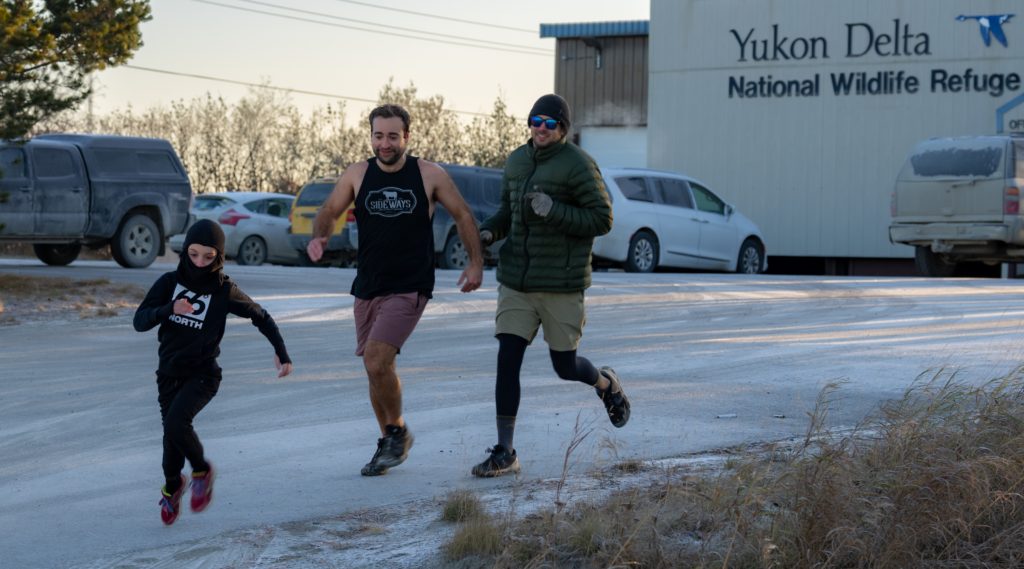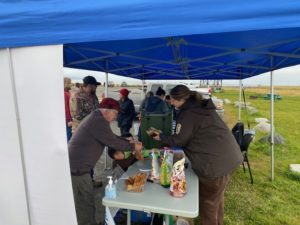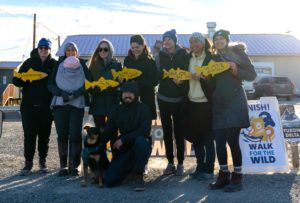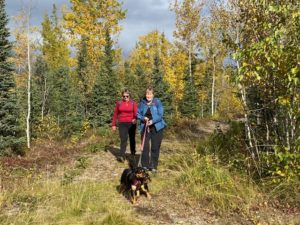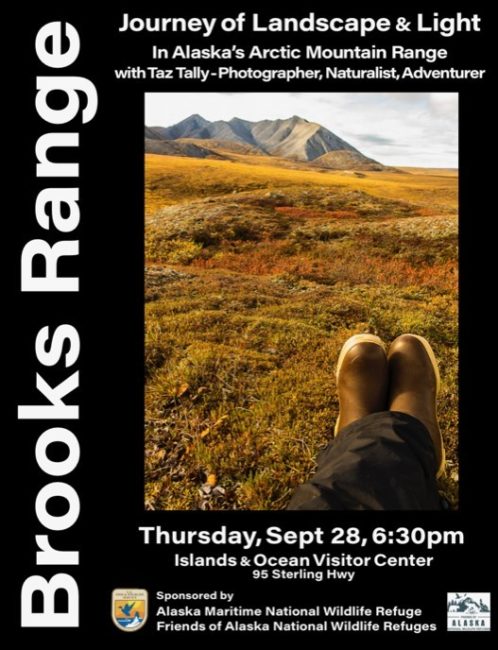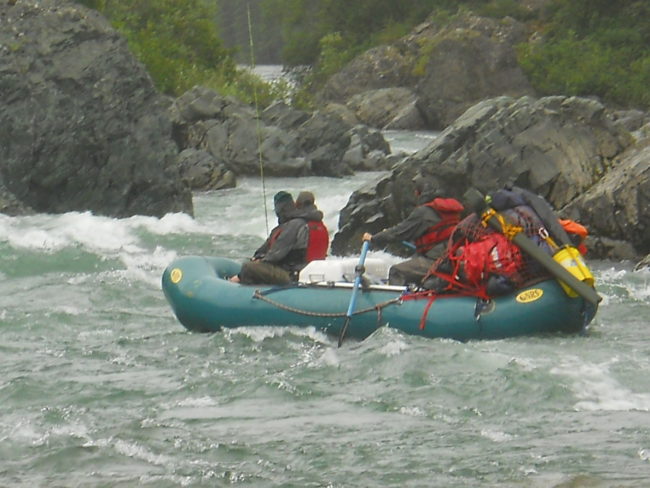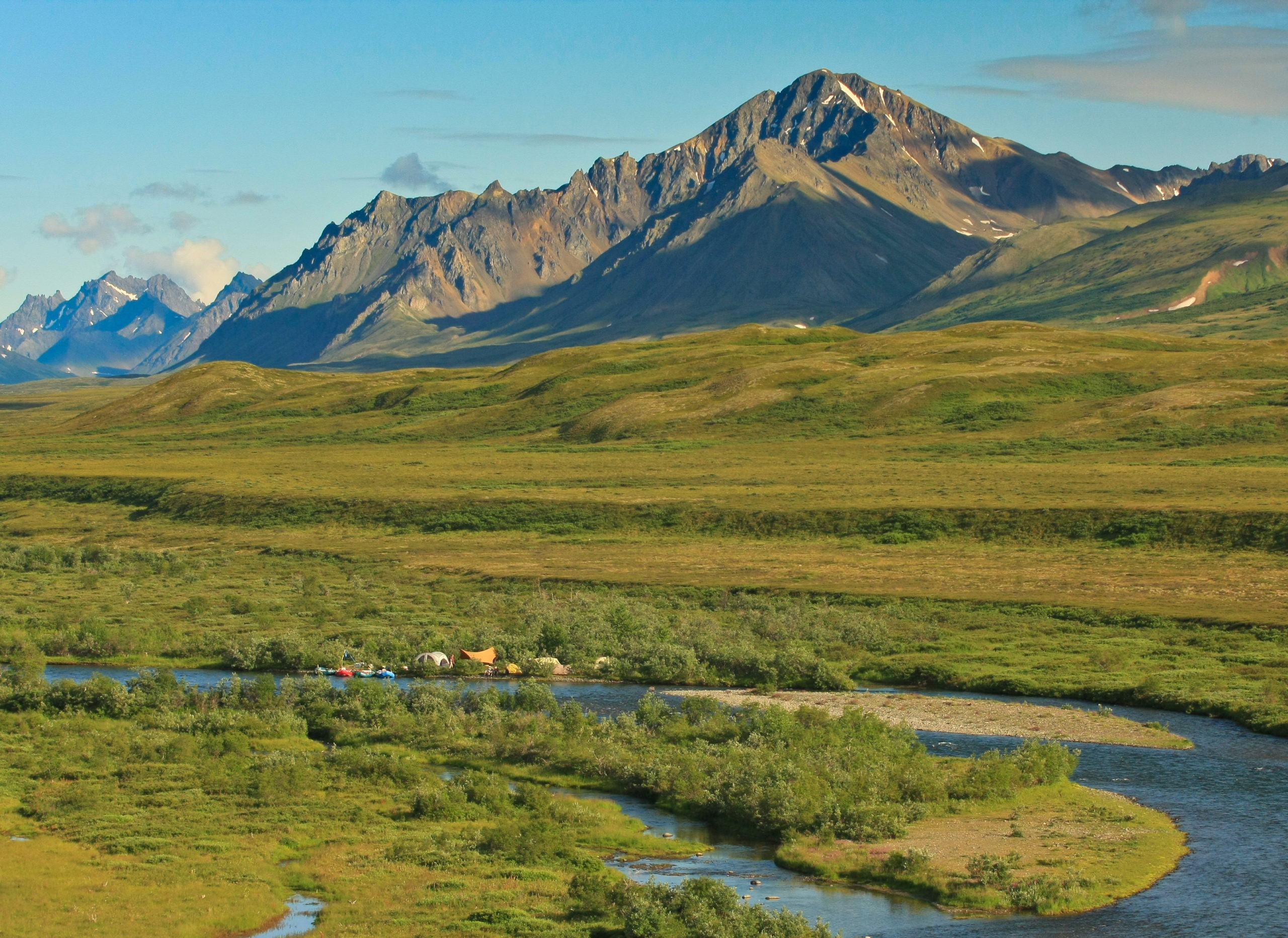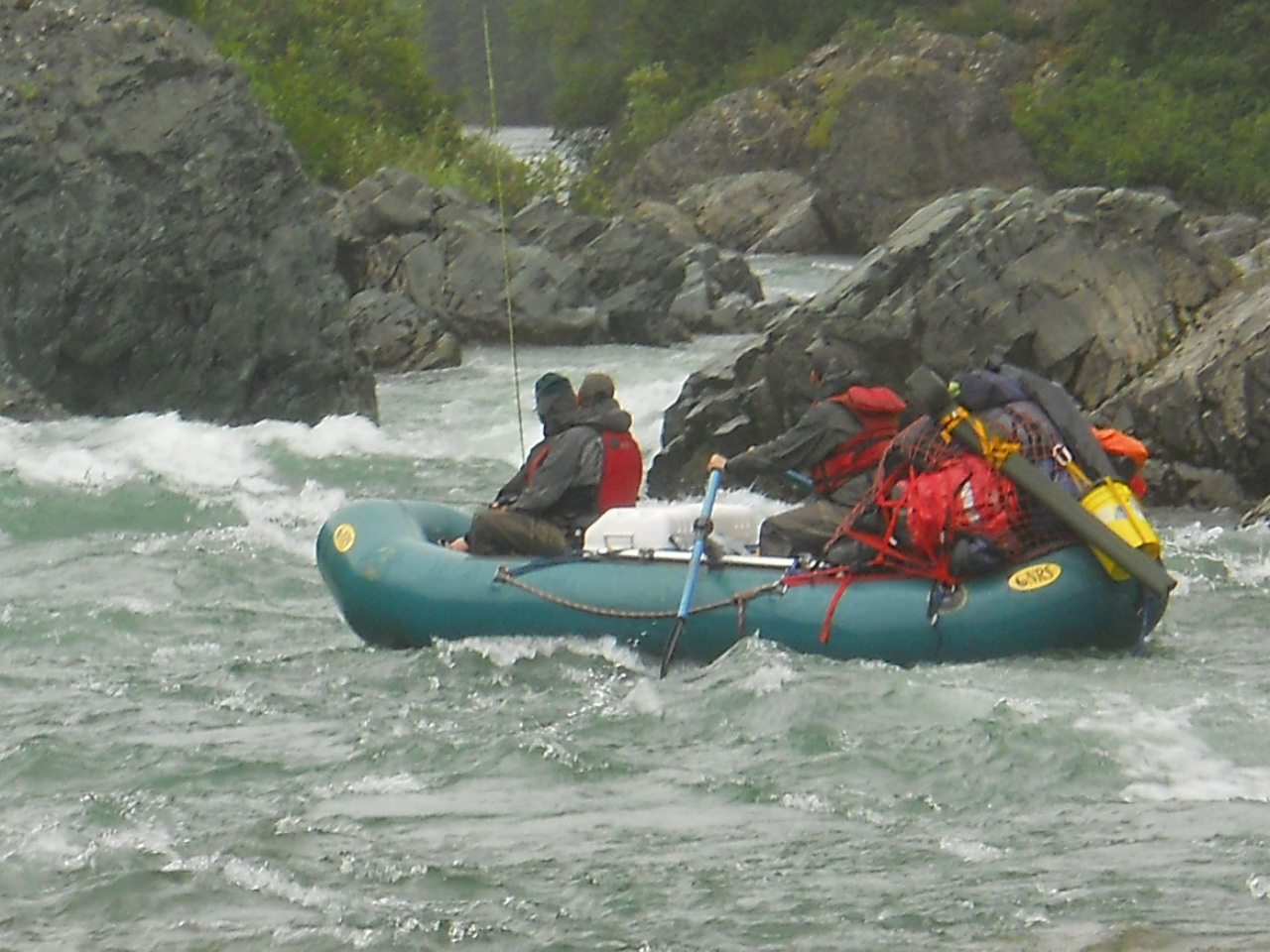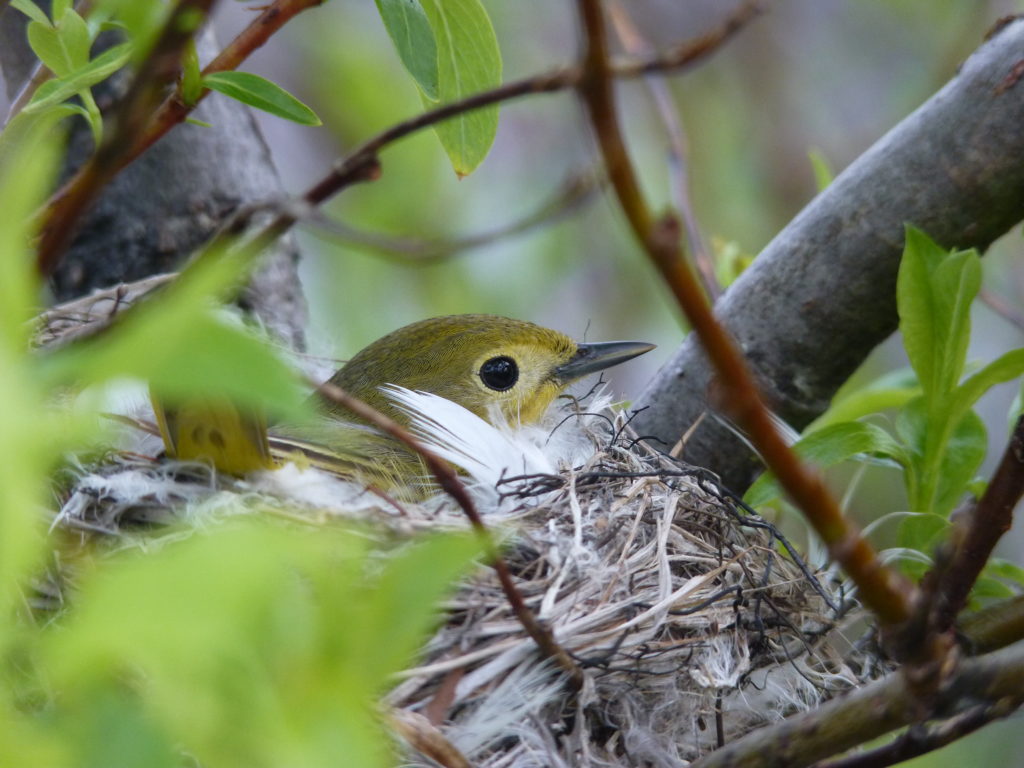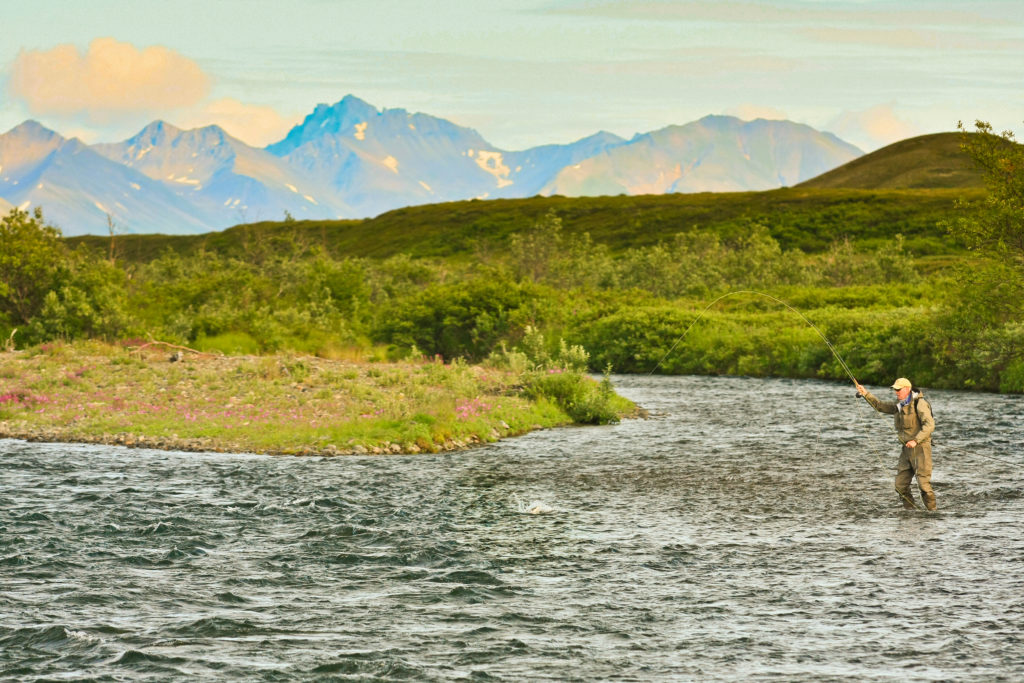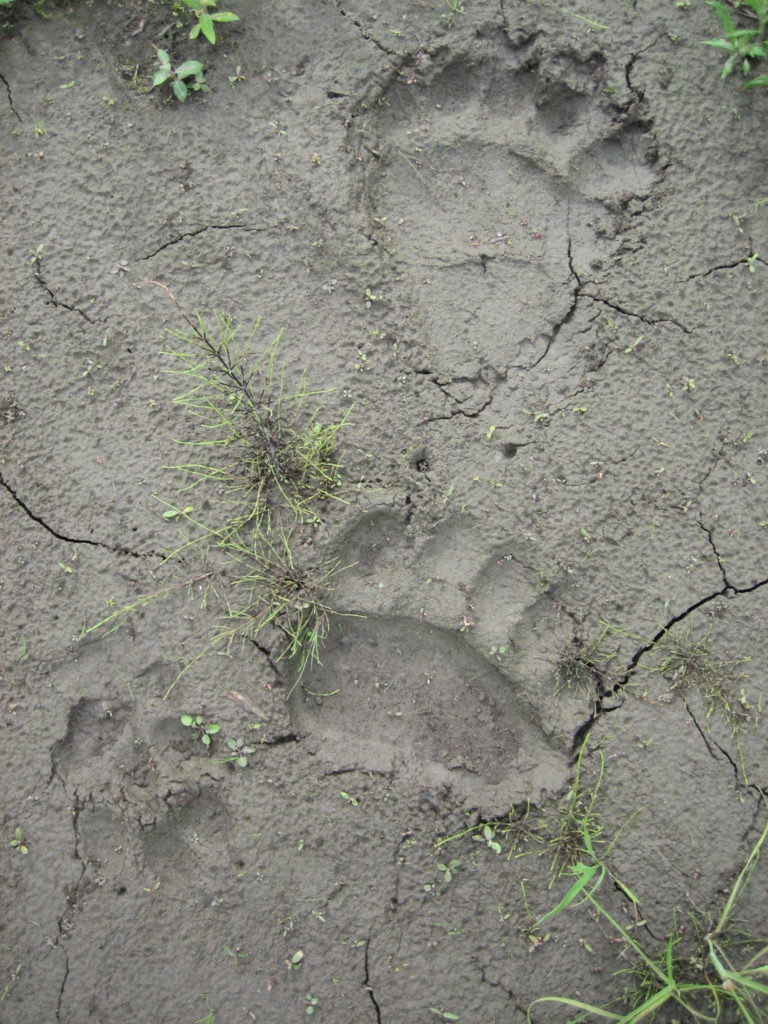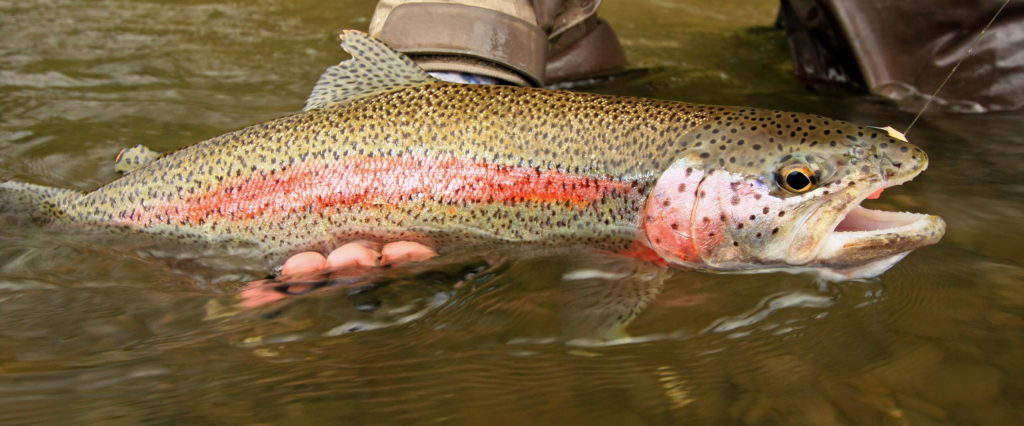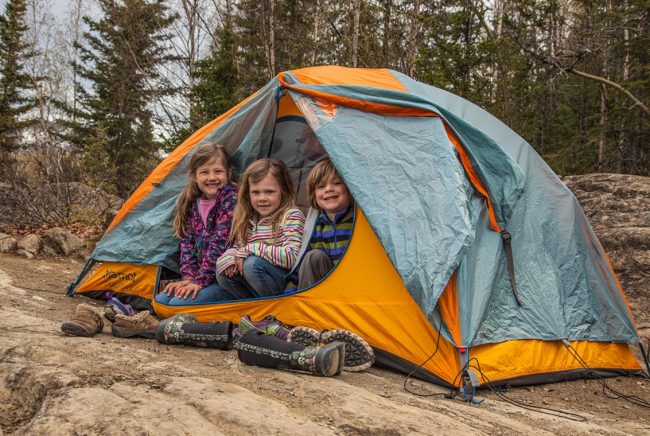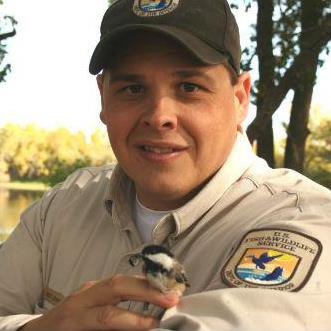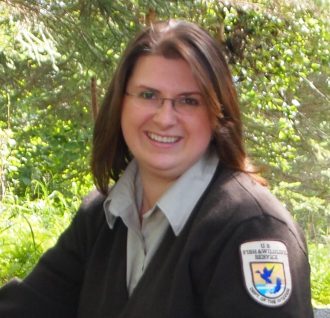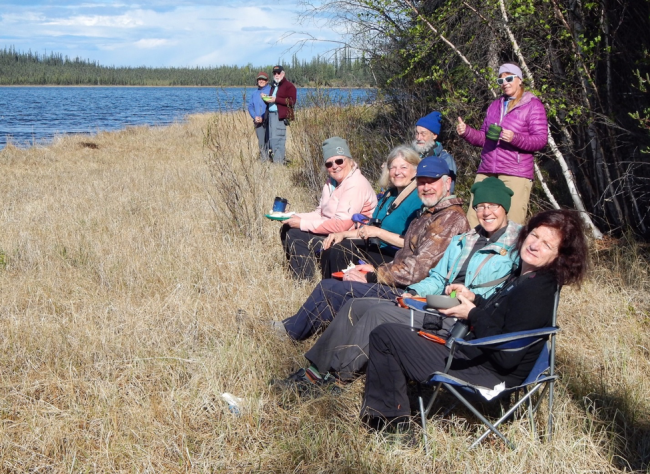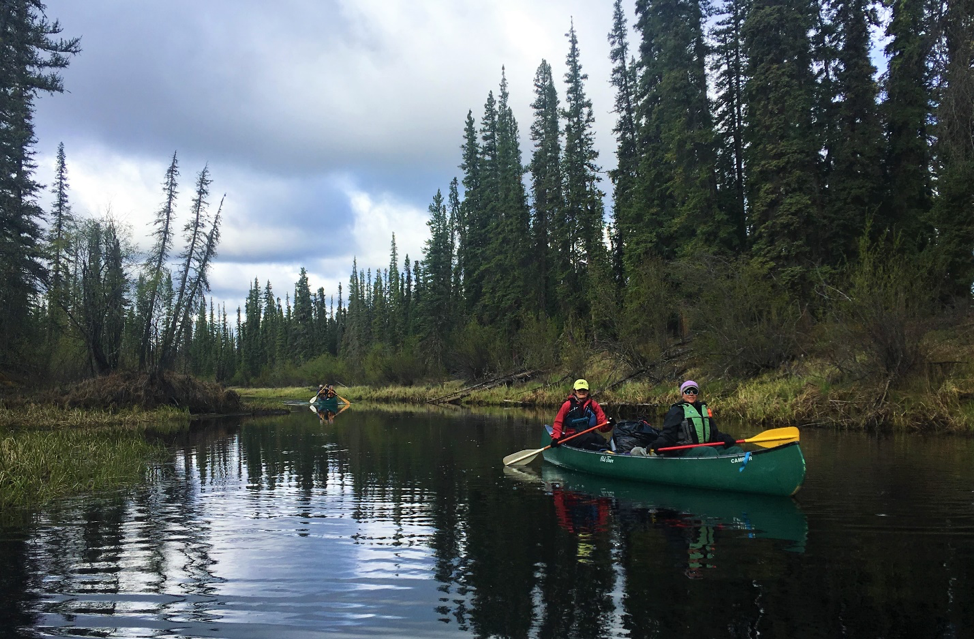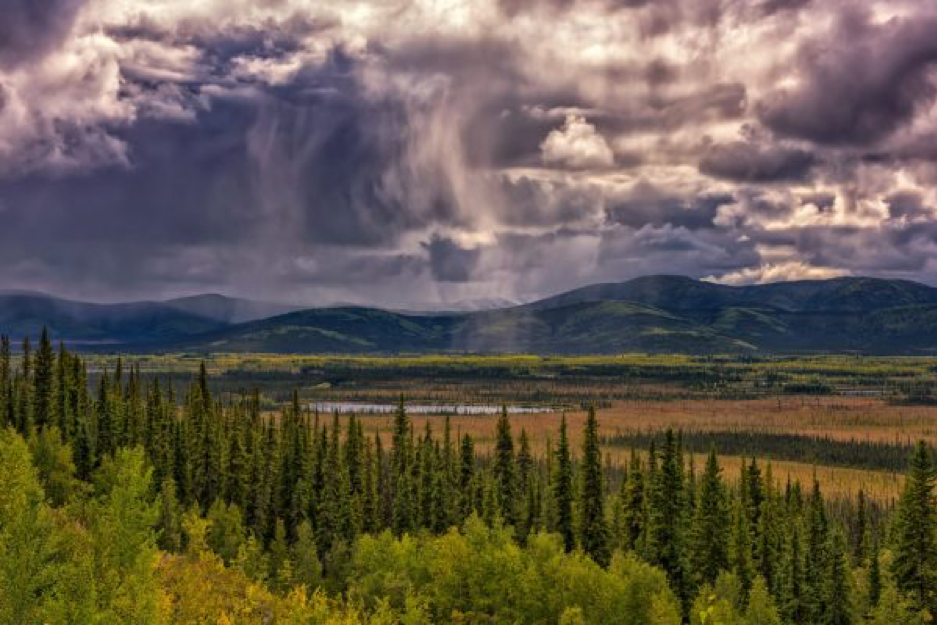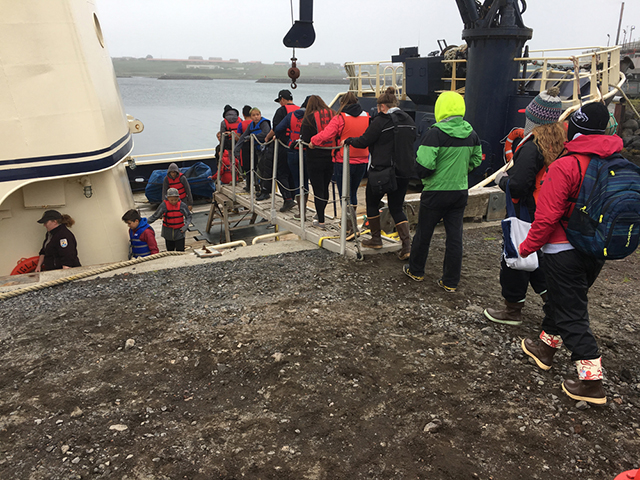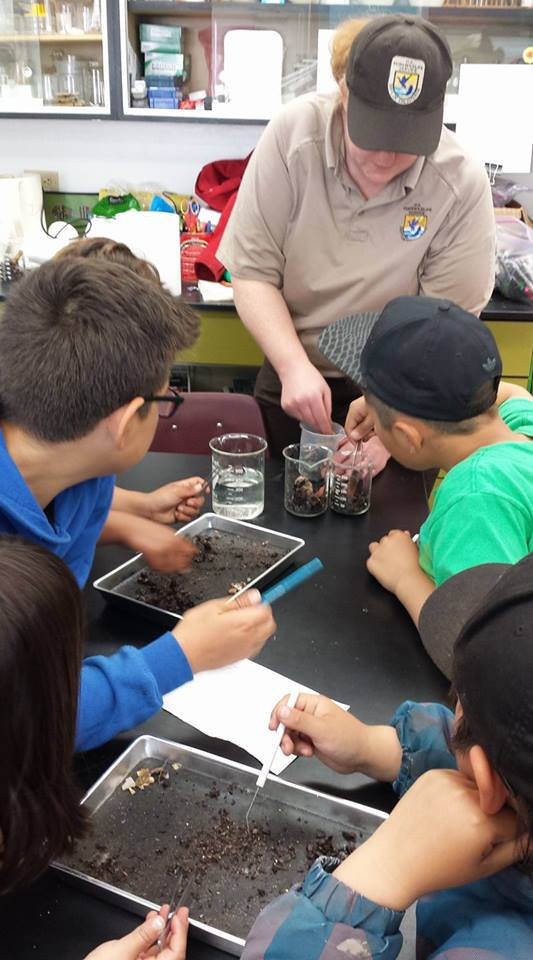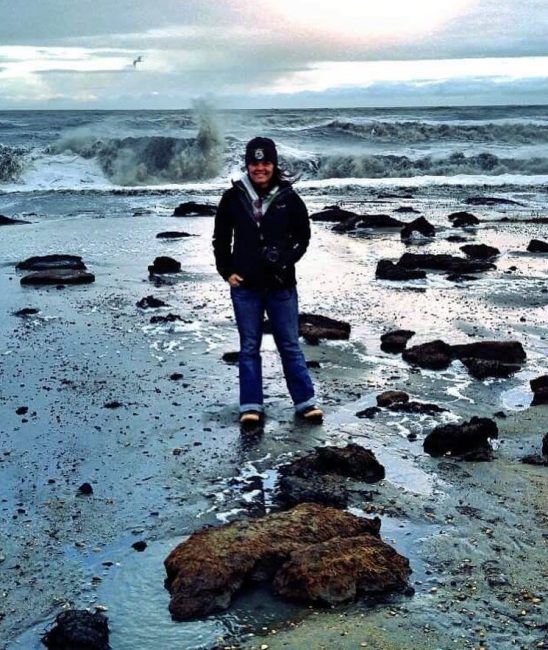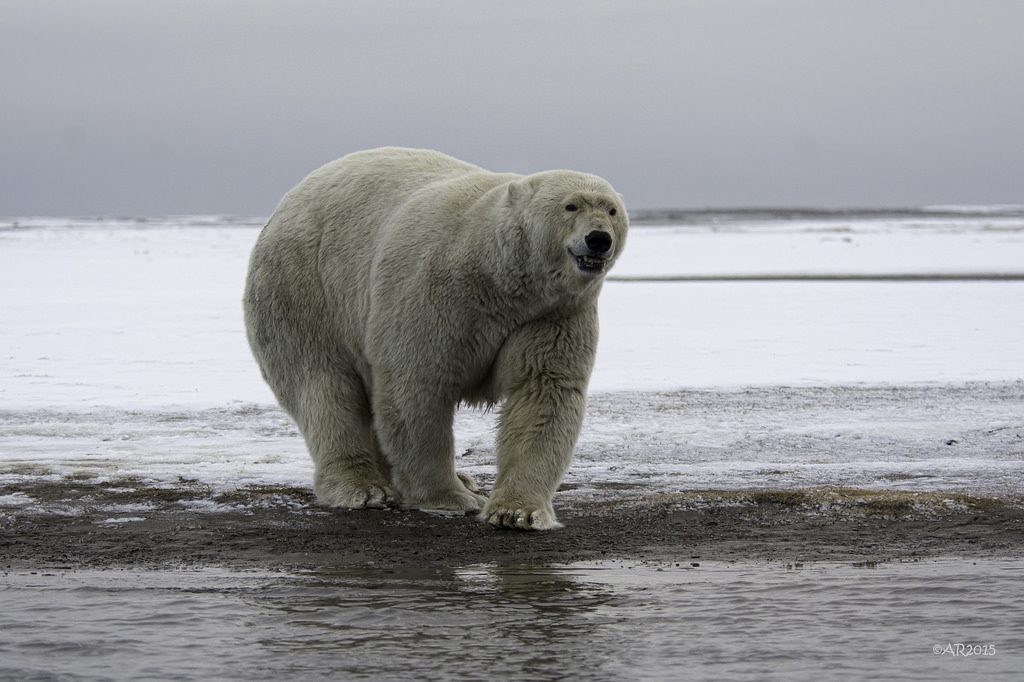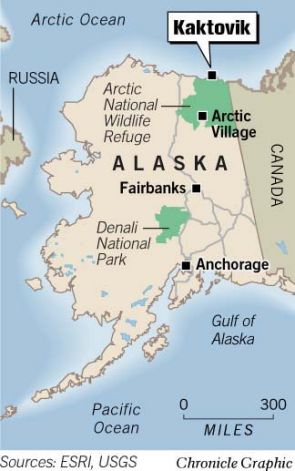Art in the Arctic 2025
On February 7, 2025, Fairbanks’ annual Art in the Arctic show returned to Black Spruce Brewing Company, bringing together a lively crowd of artists, conservationists, and nature lovers. This year’s theme, Resilience in the Refuges: Fish and Rivers of the Far North, inspired six Alaska-based artists to showcase pieces that explored both the beauty and the struggles of northern fish and the rivers they call home.
The event was co-hosted by Friends of Alaska National Wildlife Refuges and the three Fairbanks-based refuges—Arctic, Kanuti, and Yukon Flats National Wildlife Refuges. Through art, the show aimed to spark interest in these special places and the challenges faced by fish species like char, cisco, grayling, salmon, sheefish, and dolly varden. These fish, built for extreme Arctic conditions, now face threats from climate change and human activities that could impact the streams and rivers they rely on to survive.
The opening night was a huge success, with more than 309 people filling Black Spruce Brewing Company. The crowd was diverse, including artists, biologists, federal and state employees, teachers, public defenders, and folks who simply stopped by for a drink and found themselves drawn into the exhibit. Visitors had the chance to chat with Arctic refuge staff and hear from fish biologist Randy Brown, who shared insights about Arctic fish species.
A big part of the night’s success was thanks to Arctic NWR employees Hanna McBrearty and Jennifer Reed, who worked hard behind the scenes to organize the event. Friends of Alaska National Wildlife Refuges volunteers Tom Chard, Pam Seiser, and Jeff Walters ran an outreach table throughout the evening, signing up over 50 new people for the Friends’ newsletter and spreading the word about the importance of Alaska’s wildlife refuges.
Even with such a great turnout, the future of Art in the Arctic is uncertain. Fairbanks’ refuges no longer have the staff to organize it, and last year’s show had to be postponed due to venue challenges. Unless volunteers step up to keep it going, this could be the last Art in the Arctic after ten years of bringing people together through art and conservation.
The Fairbanks Friends group is talking about whether they have the time and resources to take over the event, but they can’t do it alone. If you love art, nature, and community events, now is the time to get involved. If you’d like to help keep Art in the Arctic alive, please reach out to info@alaskarefugefriends.org.
For now, we celebrate this year’s incredible show and everyone who made it happen. Whether you came to enjoy the art, connect with others, or learn more about the refuges, you were part of something special.
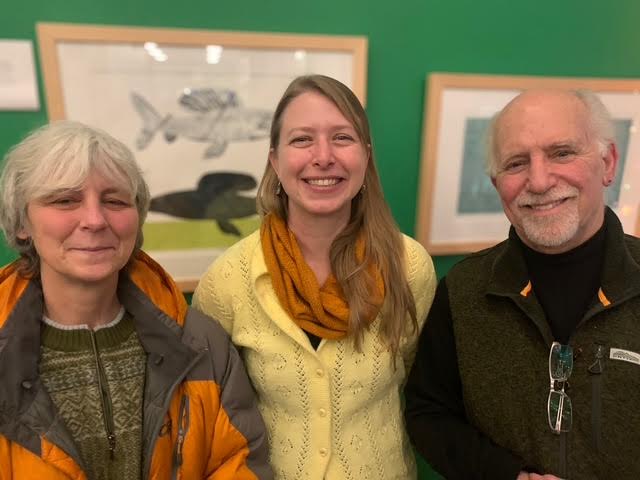
Three of our amazing artists: Marianne Stolz, Natalie Schuldt, and David Personius
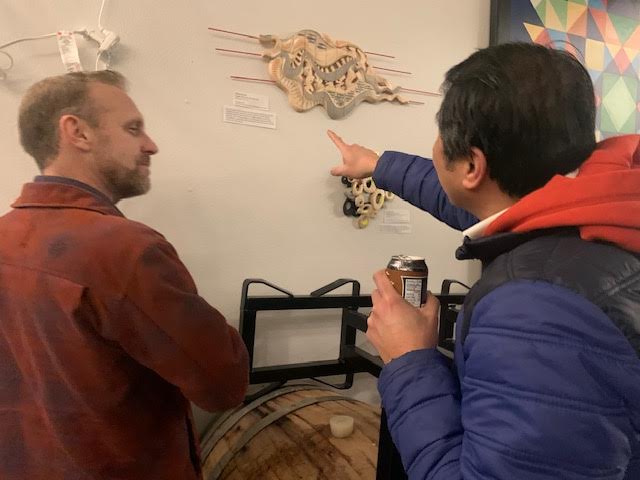
Arctic Refuge manager Merben Cebrian looking at art with Ian Wright
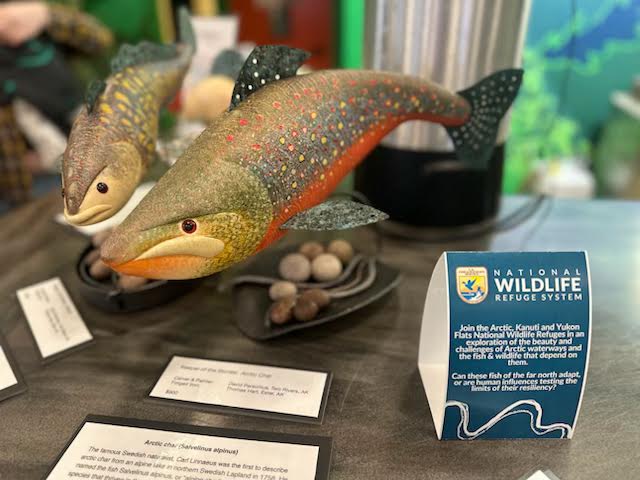
David Personius's fish sculptures with table tent information
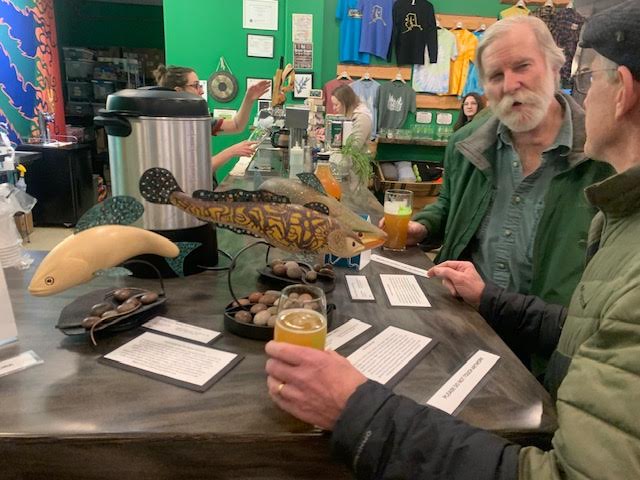
Fish biologist Randy Brown talking with a visitor (next to David's fish sculptures)
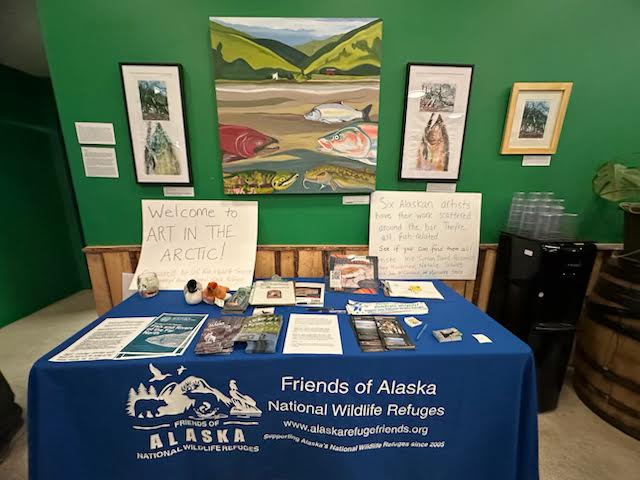
The Friends information table with artwork by Iris Sutton
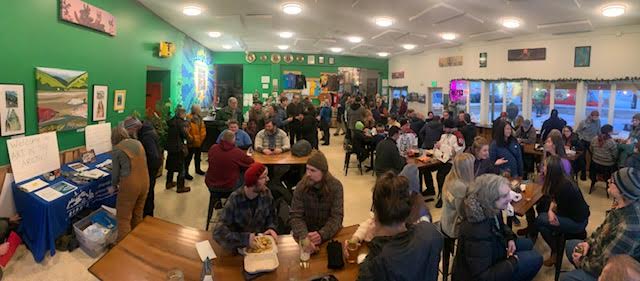
The crowd at Art in the Arctic
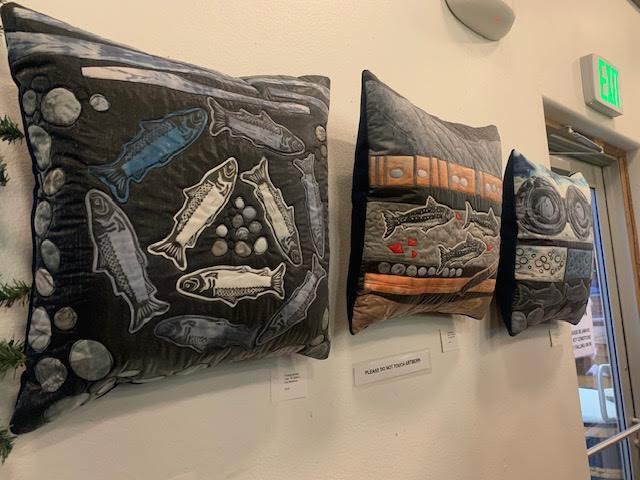
Artist Amy Mackinaw's fiber art
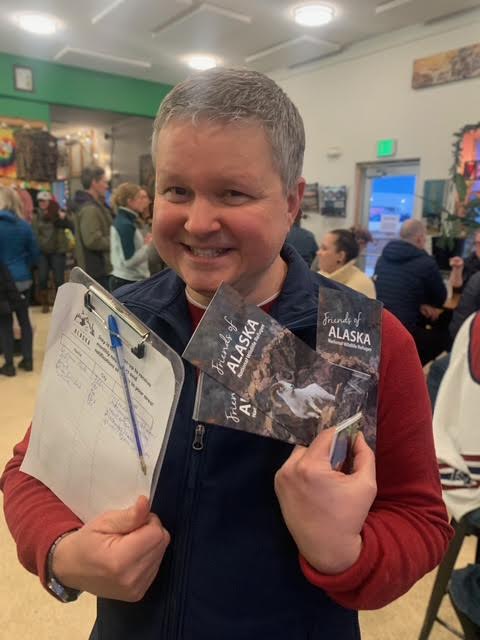
Friends Board member Tom Chard giving out brochures and getting people to sign up for Friends.
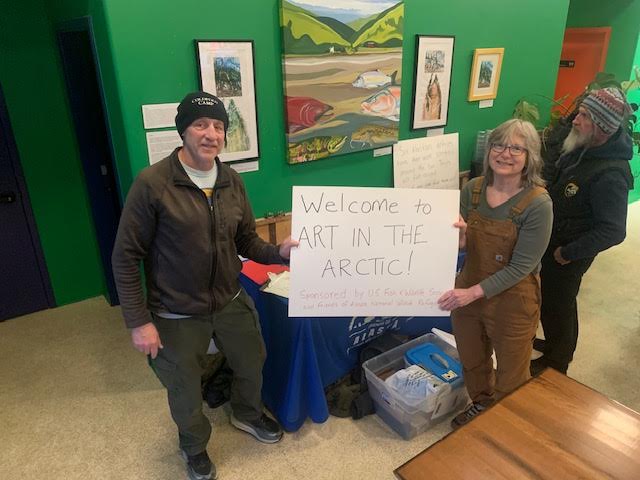
Friends volunteers Jeff Walters and Pam Seiser
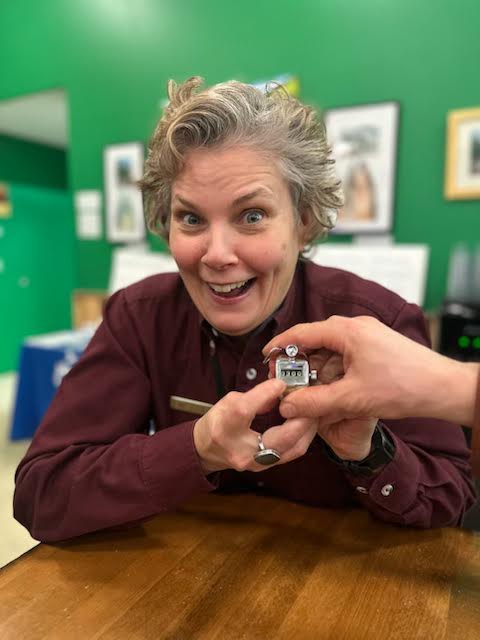
Jennifer Reed with our clicker after the 300th person walked in the door!

